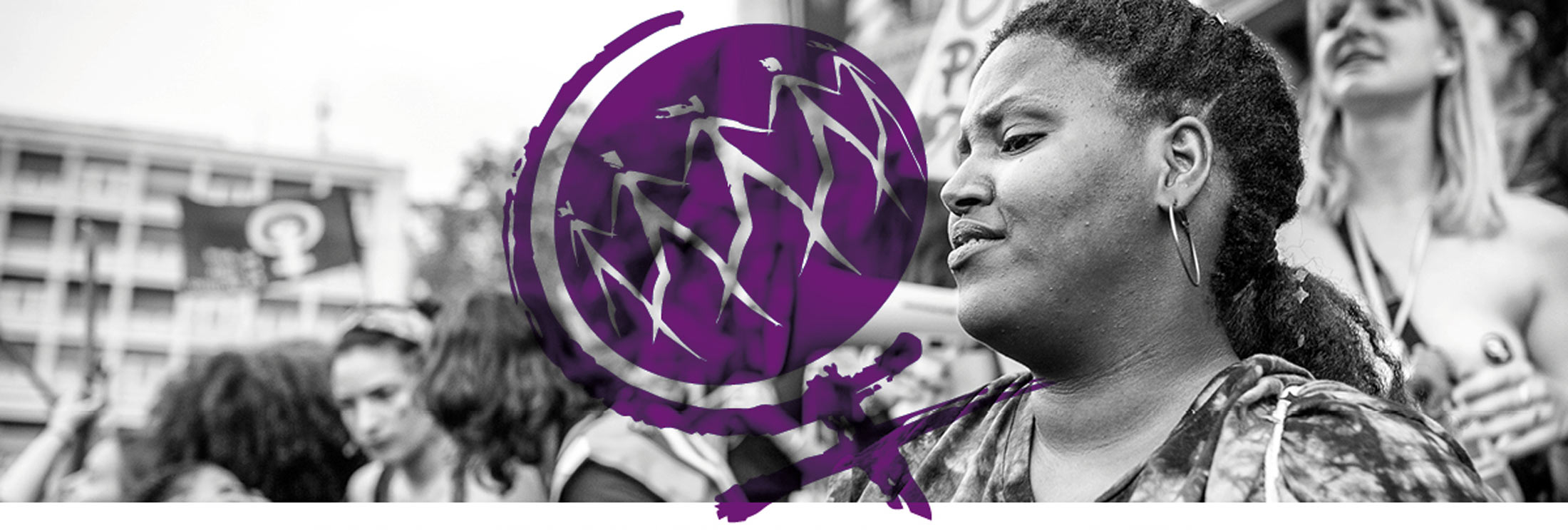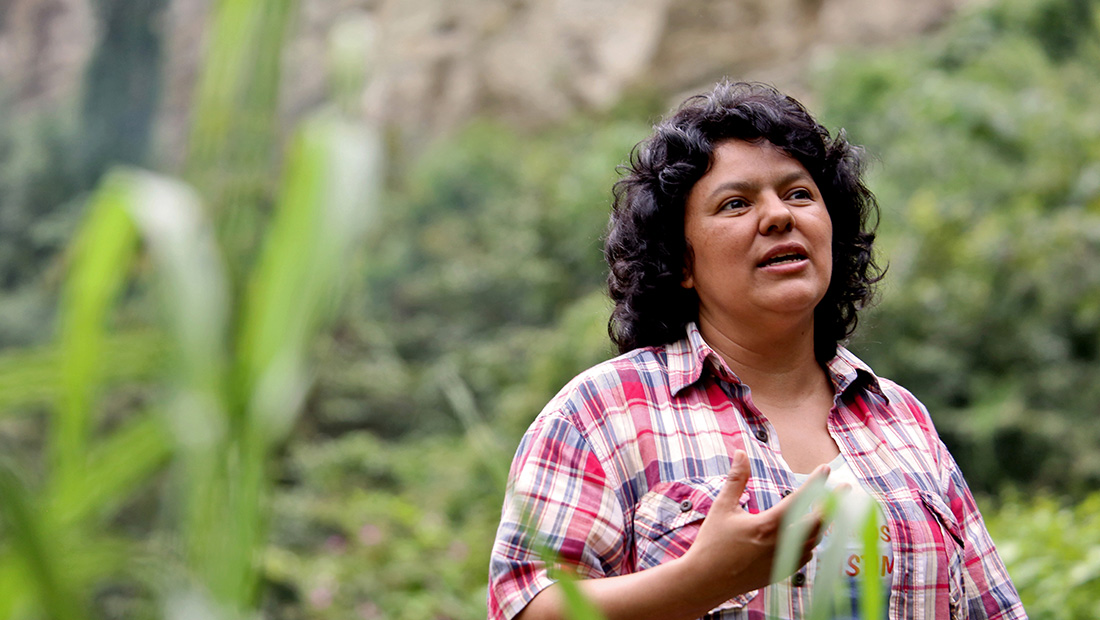Soutenir la caravane MMF
Déclaration de la Marche Mondiale des Femmes à propos de la Détention des Femmes en Diyarbakir, Turquie
(traduction)
Suite à la détention le 25 Octobre 2016 des co-maires de la Municipalité Métropolitaine de Diyarbakir, Mme Gültan Kisanak et Mr. Fırat Anli, membres du Parti Populaire Démocrate, accusés d'avoir des liens terroristes, la police a attaqué aujourd’hui les manifestant.e.s qui protestaient contre ces arrestations illégales et anti-démocratiques de personnes démocratiquement élues, en utilisant du gaz lacrymogène et des canons à eau contre la foule.
Lors de cette attaque brutale de la police devant la municipalité de Diyarbakir de nombreuses femmes ont également été détenues. Parmi elles se trouve Sultan Safak, militante Kurde et membre du Secrétariat Européen de la Marche Mondiale des Femmes.
Nous appelons à la solidarité internationale et à des actions urgentes pour faire entendre nos voix. Nous protestons vivement contre ces arrestations illégales et exigeons la libération immédiate de notre soeur et de toutes les femmes qui ont été arrêtées au cours de cette manifestation.
Nous continuerons à marcher jusqu'à ce que toutes les femmes soient libres! En solidarité !
Marche mondiale des Femmes
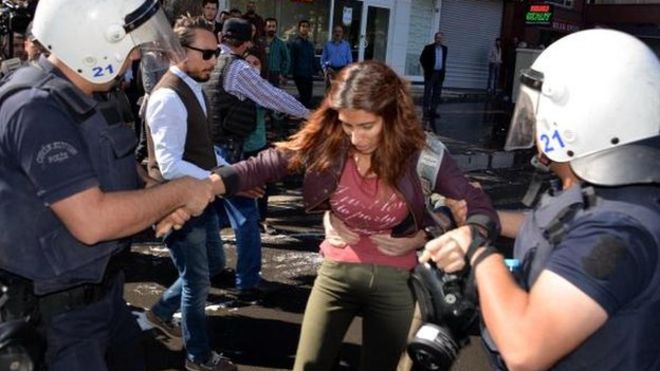
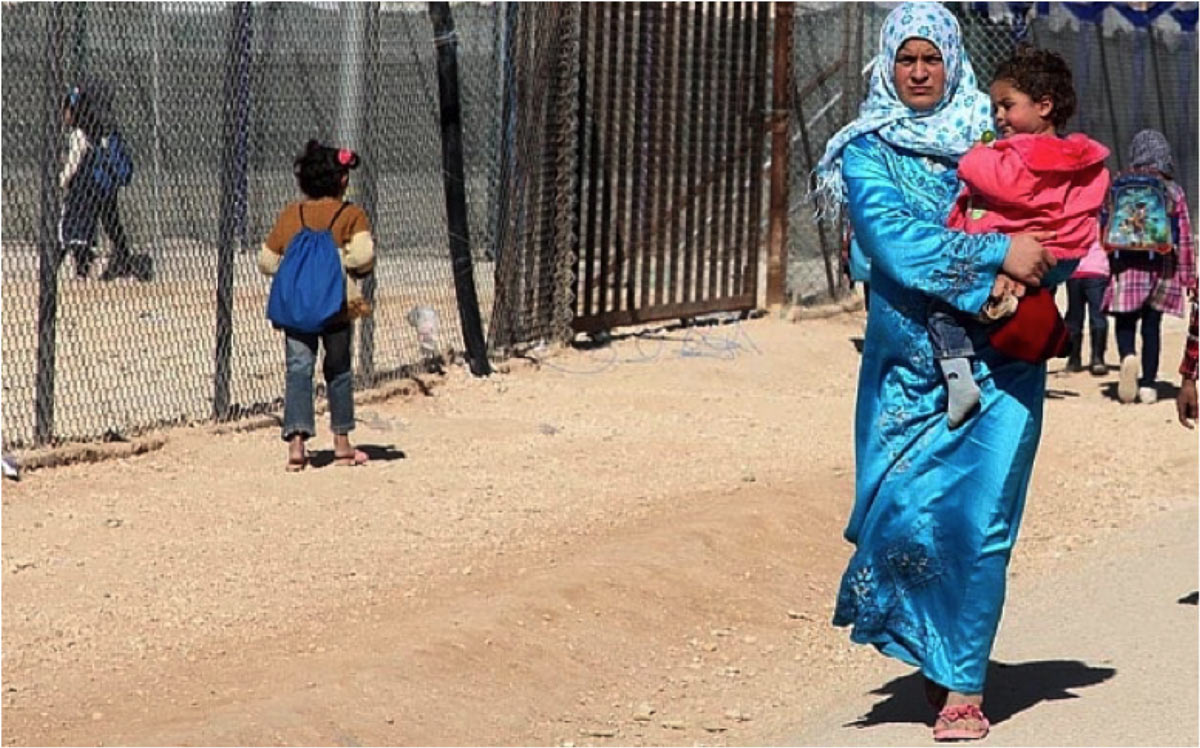
The Guardian - Monday 19 September 2016, by PANKHURST Helen
As the global refugee summits draw nearer, world leaders need to be pressured into alleviating women’s suffering.
The current refugee crisis is one of the gravest humanitarian disasters to unfold across the world in modern times. Among a multiplicity of universal horrors, this crisis presents specific threats and challenges to the millions of women who are refugees; and,like all feminist issues, the resolution of this one depends on solidarity.
This week’s Global Summit on Refugees and Migrants is a key moment for feminists to call upon world leaders with the age-old rallying cry: deeds not words.
While the world looks the other way, Care International and Women for Refugee Women have been working together in advance of the summit, to give refugee women a platform to tell their own stories – tales of grief and hardship that shed light on the fact that this crisis is very much a woman’s crisis.
Take Nadia. Forced to flee her native Iraq when she was four months pregnant, she sought relative safety across the border in Syria. How desperate must a person be to regard the crossing into Syria as the lesser of two evils? In Nadia’s case, she was driven by the sight of a car full of fellow Yazidi girls being burned alive by extremists, a fate she feared awaited her own family.
After a desperate spell in Syria, Nadia made the journey to Greece in an unseaworthy, leaking boat when nine months pregnant. Her unborn child died on the journey, the inevitable result of malnutrition and stress.
On arrival in Greece, Nadia was given a hurried caesarean. She recalls: “They didn’t even let me see my baby. They just took him away and buried him in a mass grave ... I cried and cried for days. I cannot even visit my son’s grave.” When Care and Women for Refugee Women call out for the dignified and fair treatment of refugees, it is for women such as Nadia.
“When a woman’s situation is so desperate that she is forced to engage in ’survival sex’, that’s a feminist issue”
As another woman, Dana, summarised: “In Syria, you can die one day from a bomb, but on this journey you die every single day.” Dana – a mother of two – currently lives in a refugee camp in Serbia. She arrived carrying few possessions, but a weight of misery that no woman, no human, should have to bear.
And stories like these are 10 a penny across Europe right now. When a woman’s situation is so desperate that she is forced to engage in “survival sex” to secure a male protector for her journey, that’s a feminist issue. When a woman is forced to trudge for hundreds of miles on foot, heavily pregnant and with malnourished children in her arms, that is a feminist issue.
When young girls are being married off at a heartbreakingly young age because it’s seen as their greatest chance of survival; when women are miscarrying on the side of the road in an unfamiliar country; when mothers are forced to send their children unaccompanied on dinghies in the dark, unconvinced they’ll ever see them alive again; when women are reaching the UK and being abused and degraded, or detained while pregnant for the crime of seeking refuge: these are feminist issues. Urgent, desperate, outrageous feminist issues. And, as feminists, we must act.
Ahead of the global refugee summits, we are making some very plain demands of world leaders. First, ensure more support in developing countries for refugee women; second, secure safe, legal routes for vulnerable refugee women so that they don’t have to take dangerous journeys at the hands of smugglers; third, take action to protect women and girls from sexual violence and trafficking. And fourth, specifically to the UK government, give refugee women in the UK dignity and a fair hearing.
The refugee crisis is controversial, and in these turbulent times calls to offer added protection for refugees are increasingly met with opposition. But I look at the media’s portrayal of refugees – the objectification, the dehumanisation – and I see history repeating itself: the same history that sent my own ancestors fleeing for their lives. For I am the daughter and granddaughter of refugees. On the famous suffragette Pankhurst side, my grandmother Sylvia’s partner was an Italian anarchist who came to call the UK home; and my mother originally came from Romania in 1938, fleeing the rise of fascism.
Wherever in history we see vast swaths of people forced out – or worse, wiped out – you can guarantee it’s accompanied, somewhere, by propaganda insinuating that these lives are disposable. As a country we were on the right side of history when fascism and nazism took hold. We must ensure the same applies today.
The shame of this crisis will not be whitewashed in the history books; it will scar our collective conscience for generations. We have an individual and collective responsibility to act now.
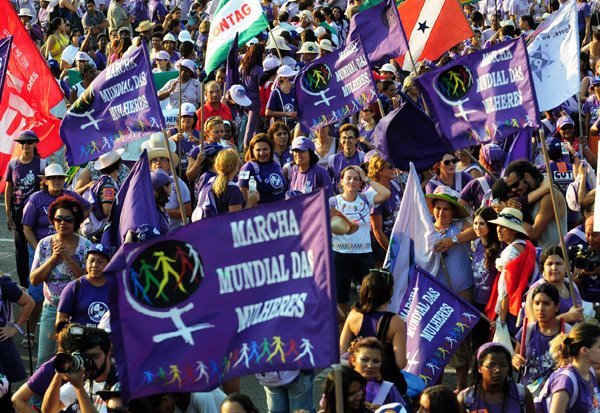
La Marche mondiale des femmes en Suisse dénonce avec force la tentative de coup d'Etat au Brésil et se joint au mouvement international de solidarité avec la MMF du Brésil pour la défense de la démocratie, de la légalité et de la présidente Dilma Rousseff. Le machisme et le coup d'Etat ne triompheront pas.

La colère, l'indignation et la douleur ressenties par l'absence de notre amie et collègue Berta Caceres sont toujours ancrées dans nos coeurs.
Berta était une représentante indigène important e qui, depuis plus de 20 ans, représentait le Conseil Civique des Organisations Populaires et indigènes du Honduras. Promotrice infatigable du droit des communautés rurales et du peuple Lenca du Honduras, elle a aussi inspiré les luttes sociales des organisations et des mouvements régionaux et internationaux.

Chères camarades, amies, militantes, combattantes.
Ces jours-ci, le monde se prépare à fêter le 8 mars. La Journée Internationale de la Femme est célébrée dans toute la planète par des syndicats, des organisations, des groupes de femmes... qui, ignorant souvent les origines so-cialistes de cette date, rendent hommage aux femmes qui seraient mortes, enfermées et piégées par un incendie dans l’usine où elles travaillaient aux États-Unis.
Nous, la Marche Mondiale des Fem-mes, nous célébrons la lutte des femmes et du mouvement féministe dans toute la planète. Nous cé-lébrons la force de toutes celles qui consacrent leurs ef-forts à se libérer du patriarcat, du néoco-lonialisme, du capi-talisme et du racis-me qui sont les cau-ses qui se trouvent à la source du systè-me oppresseur dans lequel nous vivons.
Seite 5 von 8
